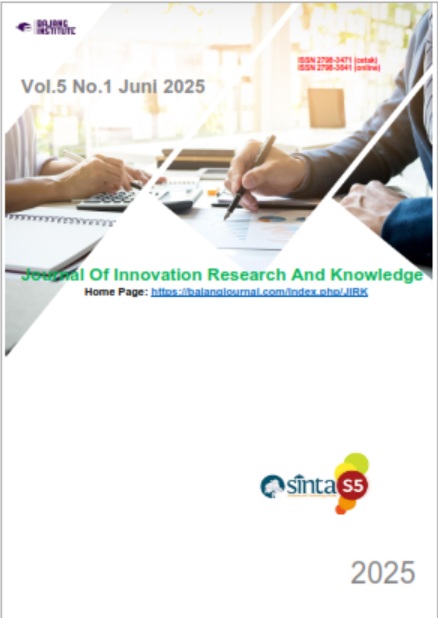THE IMPORTANCE OF GREEN ACCOUNTING IN THE BANKING SECTOR IN UZBEKISTAN: ANALYSIS OF DIFFERENCES IN PERCEPTIONS BETWEEN ACADEMICS AND PROFESSIONALS
Keywords:
Green Accounting, Perception Gap, Banking Sector UzbekistanAbstract
This study investigates the differences in perceptions between academics and banking professionals regarding the importance of green accounting in the banking sector of Uzbekistan. With a growing global emphasis on sustainability and environmental responsibility, green accounting has emerged as a critical tool for integrating ecological concerns into financial decision-making. Despite its relevance, its adoption in Uzbekistan remains limited. Data were collected from 20 academics and 20 banking professionals using a quantitative survey method. Descriptive statistics and an independent samples t-test were used to analyze perception differences. The results indicate that perceive professionals about green accounting as significantly more important than academics This gap reflects differing awareness, exposure, and priorities related to environmental accounting practices. The findings underscore the need for increased collaboration between academia and industry and policy interventions to enhance the understanding and implementation of green accounting in the Uzbek banking sector.
References
World Bank. (2022). Uzbekistan Country Climate and Development Report
Apandi, R. N. N., & Sofia, A. (2022). Development of information system audit syllabus with critical thinkingbased approaches. Journal of Positive School Psychology, 6(3), 366-376.
Zhen, T., & Rahman, M. M. (2024). Greening emerging economies: enhancing environmental, social, and governance performance through environmental management accounting and green financing. Sustainability, 16(11), 4753.
Schaltegger, S., & Burritt, R. (2017). Contemporary environmental accounting: Issues, concepts and practice. Routledge.
Gray, R., Adams, C., & Owen, D. (2014). Accountability, social responsibility and sustainability: Accounting for society and the environment. Pearson Education.
Joshi, M., Krishnan, G. V., & Sharma, D. (2019). Environmental accounting practices in developing economies: A case of South Asia. Sustainability Accounting, Management and Policy Journal.
Ibrahim, M., & Abdulkarim, A. (2020). Green banking practices in Central Asia: A comparative analysis. Journal of Sustainable Finance & Investment.
Weber, O. (2017). Sustainable banking: History and current developments. In Sustainable Banking (pp. 1–23). Springer.
Bose, S., Khan, H. Z., Rashid, A., & Islam, S. (2021). What drives green banking disclosure? An institutional and stakeholder perspective. Journal of Accounting in Emerging Economies.
ADB. (2021). Asian Development Bank report on green finance in emerging markets.
Dikau, S., & Volz, U. (2021). Central bank mandates, sustainability objectives and the promotion of green finance. Ecological Economics.
Khan, M., Muttakin, M. B., & Siddiqui, J. (2020). Corporate social responsibility disclosures and financial performance: Evidence from emerging economies. Accounting Research Journal.
Larrinaga-González, C. (2020). Sustainability accounting and accountability in the public interest. Accounting, Auditing & Accountability Journal.
Eccles, R. G., & Serafeim, G. (2013). The performance frontier: Innovating for a sustainable strategy. Harvard Business Review.
Deegan, C. (2019). Social and environmental accounting. Routledge.
Bebbington, J., & Unerman, J. (2018). Achieving the United Nations Sustainable
Kuznetsov, A., & Kuznetsova, O. (2019). Institutional context and sustainability practices in transition economies. Journal of Business Ethics.
Chen, J., Siddik, A. B., Zheng, G. W., Masukujjaman, M., & Bekhzod, S. (2022). The effect of green banking practices on banks’ environmental performance and green financing: An empirical study. Energies, 15(4), 1292.















